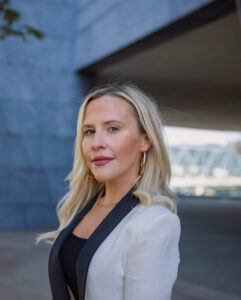Kenneth Burke, Text Request
We’ve all been there. You need to connect with a customer, so you give them a call. They don’t answer, so you leave a voicemail and never hear back.
Or you need to share a message with everyone, so you send an email, but only a few people read it. Or, you’re excited to announce a big company update on social media, but barely anyone engages with your post.
These are significant communications problems that organizations large and small struggle with, and the reason they exist is because most businesses don’t know their customers as well as they think.
How can I say that? It’s in the data.
Cloud communications platform Twilio talked to thousands of consumers and thousands of executives about company communications, and found a startling disconnect: 94% of business leaders think their customer communications are great, but 96% of consumers disagree!
For most, the experience your business is providing is not the experience your customers want. Customers want to communicate with you through different channels for different purposes. It’s up to you to recognize their preferences, and to connect with them on their terms.
How can you do that?
Start by learning what people want out of different communication channels. You can always poll the audience if you aren’t sure.
Customers want email for newsletters and records.
The average person gets upwards of 75 emails a day, and most of it’s spam. For some people and situations, email is a good conversational channel, but it’s a much better place for funneling information.
Customers like emails for keeping records of confirmations, receipts, details about XYZ and even coupons. Email is that searchable place you go back to to refresh your memory. Outside of internal office communications, it’s rarely the place you go to for instant or one-time information.
Social media is the go-to support channel.
When customers have a problem, they want an instant response. Email takes 12 hours or more (on average) to get a response, and wading through automated phone systems is awful, so customers take the conversation public.
They’ll tweet or reach out through Facebook. If you’re a local business, they might go after you in online reviews. Then they expect you to resolve the issue in that channel (not move it to a phone call, for instance).
People avoid phone calls.
These days, phone calls are mostly left for emergencies. You’ll email, text or chat someone before escalating it to a call. Why? Because a call is almost always an interruption, and robocalls are making up a larger and larger percentage of total calls, teaching customers not to pick up unless they know who’s on the other end and what they want.
That’s why many businesses have call answer rates as low as 5%.
From the customer’s perspective, phone calls are a good way for them to reach someone quickly. They might have to wade through an automated tree map of “press 1 for…” but they can normally reach someone if it’s urgent. Still, they’d rather not do this.
Texting wins for conversations.
If you want to have a conversation with someone — for sales, service, updates, feedback, etc. — texting is going to be your best bet. 89% of consumers say they want to have text conversations with businesses for these topics. When given the option, they’ll also choose text over calls or emails.
Texts are also a great way to reach customers quickly for updates, or even promotions. The average text is read within about 5 seconds of being sent, so you know the person got your message.
So which is the right channel?
There’s no “one size fits everything” option. The most important thing is that you recognize how you’re communicating with customers is probably not what they want. From there, you need to do two things.
First, you need to offer several communication channels, and give customers options to choose both how they communicate with you, and how you communicate with them. Second, pay attention to which channels they are choosing, and for which purposes.
Chances are, you’ll see most customers going to one channel for one purpose and another channel for another purpose. You may also see customers consistently going back to whichever channel you respond quickest to. As you gather this information, you can double down on providing better experiences for everyone.
What would better experiences do for your business?
86% of buyers are willing to pay more for better customer experiences, and 65% of buyers say a good customer experience is more influential than any advertising.
For you and your business, great communication experiences will mean an increase in sales due to faster response times, an increase in online reviews because you have happier customers and can connect with them consistently, saving on operations from improved efficiency, and more referrals because people want to tell their friends about the good experiences they’re having.
If you’re not sure what your customers really want, take a step back and ask! The answers may surprise you.








